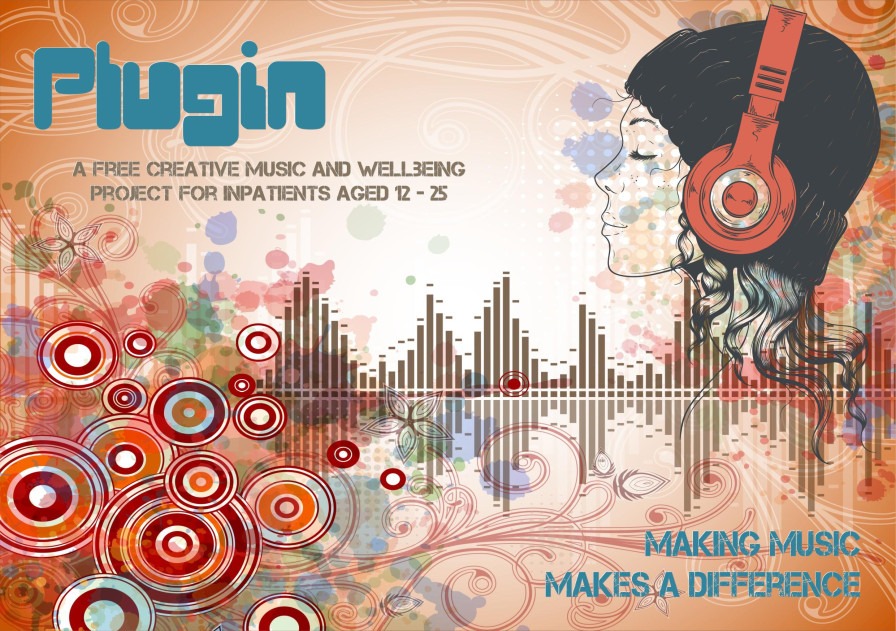What I have learnt on the Plugin project by Vratislav Klemera (Young Music Leader on Quench Arts’ Plugin project)

Most of my work as a music educator has been what many might imagine – educating students, usually through providing information. Of course, teaching is about more; it’s about encouragement, support, and perhaps most prevalently, it is about providing a structure through which a student can train and improve themselves. Expertise relayed through instruction. Working on the Plugin project, however, has changed my relationship with my role as an educator by exposing me to the methodology of music facilitation.
Working with the young participants on the wards has redefined how I think about teaching others. While I might ordinarily shape my delivery of set ideas to best fit how a particular student learns, teaching music in this way is still about getting comfortable with one set idea before moving onto the next. This is by no means wrong; it is just beholden to a structure that does not necessarily start where every student needs it to. Music facilitation is the ground zero of developing musicianship, it is how we provide opportunities through which someone can fall in love with music, and begin their journey with their personal creative ideas at the forefront of their own creative practice.
My work on the Plugin project was most often about asking questions. Finding out what music the participants were into, whose lyrics they resonated with; what specifically about the songs they listened to they found pleasing. With taste as the baseline, the sessions provided a space in which participants could abandon shame or uncertainty, and freely make mistakes in pursuit of self-set goals. Crucially, the sessions became about participants listening to what they made and played; about them identifying how successful they were in fulfilling their vision and about working to improve skill in direct co-operation with taste, rather than despite it.
Much of the structure of musical learning posits that, like any other trade, success in music is universally dependant on specific foundational ideas. As a result, many music educational structures nurture exceptionalism in a single field of music, which, when applied across an entire population, leaves behind the majority of a population’s worth of potential music lovers. While foundational precepts in music are absolutely a necessary means of attaining proficiency in a particular area, music is an ultimately personal practice, and an accumulative learning process over a lifetime. Those who learn scales can put them to use in making Dubstep, and (though this may be an odd sentiment for many to consider) vice versa. Focusing on facilitation means focusing on those who often believe they cannot make music, when in fact they just have not been given an opportunity that suits them.
It is, therefore, through Plugin that I have realised that one of the most important things I can teach to students is to love and embrace a recklessness for music, a desire to try different things, hopefully over a whole lifetime. The skills I’ve learned are certainly not in pursuit of just one thing, and nor would I expect my students to only want a single thing from music. Holistic approaches to music are vital, particularly as they encourage creativity in the pursuit of your practice. The participants on the Plugin project, through the weekly space and opportunity they had to create and experience music freely, could begin developing their own creative practices. Beat makers improvising on the piano to make increasingly imaginative beats; singers having a chance to become more assured by singing any song they could imagine weekly; poets augmenting their delivery with sound design. It is vital for the creative practitioner to have at least a fragment of their practice freed from expectation. This is hard for many to do in practice (ironically), but perhaps if teaching also means facilitating – encouraging those who learn to follow their taste with some more recklessness – then perhaps we can all come to love the practice more.
